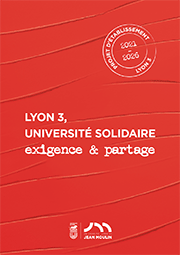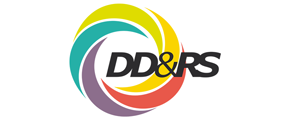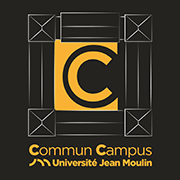AccueilRechercheProgrammes et productions scientifiquesThèsesThèses soutenuesThèses soutenues - 2006-2021Thèses soutenues - 2011
-
Partager cette page
- Recherche,
CREMER Eric
Gouvernance des projets innovants et action du "middle-manager" dans les grands groupes : Le cas du projet de télévision par ADSL au sein d'un grand groupe audiovisuel fran?ais
Publié le 19 octobre 2011 – Mis à jour le 29 mars 2012
Thèse en Sciences de gestion soutenue le 23 septembre 2011
La thèse s’intéresse à la gouvernance des projets innovants dans les grands groupes, notamment à l’action des middle managers intrapreneurs (MMI) auprès des dirigeants afin de promouvoir des innovations de rupture et de faire évoluer leur position au sein du groupe. La littérature met en évidence les limites de la gouvernance classique et l’intérêt d’une approche cognitive. La thèse propose ainsi un cadre dynamique, identifiant le poids respectif des aspects cognitifs et disciplinaires au cours de l’évolution du projet. Elle se focalise sur la dynamique centre/périphérie du pouvoir et la stratégie du MMI. Trois phases de développement (émergence, transformation et diffusion) sont identifiées, permettant de caractériser à chaque étape les logiques des acteurs, compte tenu de l’importance relative des attributs de pouvoir, d’urgence et de légitimité. Quatre ensembles de propositions, s’appuyant sur la théorie des parties prenantes, sont avancées : sur l’évolution des connaissances, du mode de contr?le, du mode d’échanges et des attributs possédés par le MMI au cours du projet. Elles sont confrontées à l’étude du projet de télévision par ADSL au sein d’un grand groupe audiovisuel fran?ais. Celui-ci est un succès de marché mais un échec relatif pour le groupe, les dirigeants ne suivant pas les recommandations des porteurs du projet (persistance d’une dissonance cognitive). Le cas illustre le poids dominant de l’attribut pouvoir-hiérarchie au détriment de la connaissance, de même que la limite de certaines pratiques managériales (stratégies d’alliances…). En conclusion, la thèse avance qu’il s’agit de causes possibles de la difficulté des grands groupes à créer les ruptures.
The thesis deals with the governance of innovative projects inside large organizations, in particular with the action of Intrapreneur Middle Managers (IMM) with the top executives in order to promote a disruptive innovation and make evolve their own status within the Group. The literature analysis highlights the limits of the standard governance approach and the benefit from a cognitive approach. With this logical, the thesis proposes a dynamic framework, identifying the respective weights of cognitive and disciplinary sides during the project development. It focuses on the centre/periphery of power and the IMM strategy. Three phases of development are identified (emergence, transformation, spreading), allowing specifying at each step the players intents, considering the relative influence of power, emergency and legitimacy attributes. Four sets of proposals, leaning on the stakeholders’ theory, are proposed: on knowledge development, control mode, exchange mode and attributes owned by the IMM during the project. They are tested though the study of the television over ADSL project with a leading French audio-visual Group. This project appears to be a market success but globally a failure for the Group, the top executives having not followed the recommendations of the project owners (remaining of a cognitive dissonance). The case illustrates the dominant weight of the power-hierarchy attribute to the detriment of knowledge, as well as the limits of some managerial practices (alliances strategy…). In conclusion, the thesis suggests that they are possible causes of the large group’s difficulties to create disruptions on the market.
Mots clé : Gouvernance; Innovation; Connaissance; Dissonance cognitive; Architecture organisationnelle; Parties prenantes; Pouvoir; Intrapreneuriat; Middle manager; Télévision;
Télécommunications; Internet
Key words : Governance; Innovation; Knowledge; Cognitive asymmetry; Organizational Architecture; Stakeholders; Power; Intrapreneurship; Middle Manager; Television; Telecommunications; Internet
Directeur de thèse : Fabrice ROTH
Membres du jury :
Dominique JOLLY, Professeur HDR, SKEMA Business School
Ludovic FRANCOIS, Professeur HDR, HEC Paris
Fabrice ROTH, Professeur, Université Jean Moulin Lyon 3
Frank BOURNOIS, Professeur, Université Paris II Panthéon Assas
Président : Frank BOURNOIS
Mention : Très honorable
Equipe d'accueil : MAGELLAN
Mots clé : Gouvernance; Innovation; Connaissance; Dissonance cognitive; Architecture organisationnelle; Parties prenantes; Pouvoir; Intrapreneuriat; Middle manager; Télévision;
Télécommunications; Internet
Key words : Governance; Innovation; Knowledge; Cognitive asymmetry; Organizational Architecture; Stakeholders; Power; Intrapreneurship; Middle Manager; Television; Telecommunications; Internet
Directeur de thèse : Fabrice ROTH
Membres du jury :
Dominique JOLLY, Professeur HDR, SKEMA Business School
Ludovic FRANCOIS, Professeur HDR, HEC Paris
Fabrice ROTH, Professeur, Université Jean Moulin Lyon 3
Frank BOURNOIS, Professeur, Université Paris II Panthéon Assas
Président : Frank BOURNOIS
Mention : Très honorable
Equipe d'accueil : MAGELLAN
Documentation
Mise à jour : 29 mars 2012







